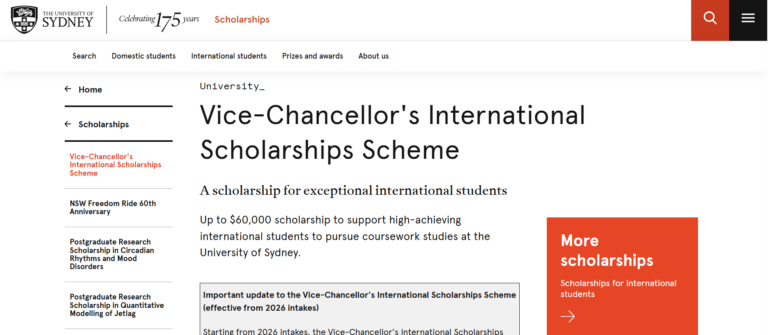Introduction
Explore University of Oxford scholarships one of the oldest and most prestigious institutions in the world, offers a wide range of scholarships and funding opportunities to support both undergraduate and graduate students. Whether you’re coming from an under represented background, a country with fewer funding options, or simply just outstanding in your field, Oxford has several schemes designed to reduce financial barriers. These awards may include full or partial fee waivers, stipends for living costs, college-based bursaries, or grants to help with research and travel. The university also partners with external donors, foundations, and international trusts to broaden options for students globally.
In recent years, Oxford has expanded its funding resources significantly. Graduate applicants typically find that by submitting their course application by the relevant December or January deadline, they are automatically considered for many centrally administered scholarships. For undergraduate students, there are also specialised bursaries, non-repayable grants, and external awards. While eligibility criteria vary by scheme (by course, nationality, subject, or financial need), the overarching principle is often academic merit combined with potential and, in many cases, a demonstration of need. With over 1,100 full or partial graduate scholarships expected for new students in 2026-27, Oxford is continuing to bolster support to attract global talent.
Scholarship Summary
| Category | Details |
|---|---|
| Scholarship Name | Various Oxford University Scholarships & Bursaries |
| University | University of Oxford, UK |
| Programs Covered | Undergraduate & Graduate (Master’s, PhD) |
| Fields of Study | All subject |
| Eligibility | Varies by scheme (academic merit; residency or nationality; course subject; sometimes financial need) |
| Benefits | Full and partial |
| Application Period | usually December or January |
Eligibility Criteria
To be considered for University of Oxford scholarships, applicants generally must meet several common criteria, though individual scholarship schemes will have additional requirements:
- Academic Excellence: High achievement in previous studies; many scholarships prioritize merit.
- Nationality or Residency: Some scholarships are open to all; others are restricted to specific countries or regions. For example, there are scholarships for nationals of Asian countries, Middle East, Africa, etc.
- Financial Need: Some awards require or favour applicants with financial need.
- Field or Subject Restrictions: Certain scholarships are tied to specific faculties, departments or courses (e.g. Humanities, Social Sciences, Biochemistry, etc.)
- Application Timing: For many graduate scholarships, you must apply for your course by the standard deadline (December or January) to be automatically considered. Additional deadlines or documents may apply for some specific scholarships.
- Under-represented Groups: Several scholarships specifically aim to support under-represented students (by ethnicity, nationality, gender, or disability).
Scholarship Benefits
University of Oxford scholarships vary quite a bit in what they cover. Some of the benefit types include:
- Tuition Fee Coverage: Many scholarships cover full tuition, or at least the UK/overseas rate, depending on the scheme.
- Living Cost Grants: Many graduate scholarships include a stipend or grant for living expenses for the duration of the fee liability period.
- College-specific Benefits: Some awards offer additional support via the college (e.g. accommodation, mentoring, events, community programs).
- Non-repayable Bursaries / Grants (Undergraduate): Undergraduates with financial need may receive bursaries that do not need to be paid back.
- Additional Support: For some schemes there are travel grants, research funds, or contributions to costs such as books or fieldwork. However, these extra benefits are more likely in specific departmental scholarships. University of Oxford+1
Required Documents
While document requirements depend on the specific scholarship, applicants should generally be ready with:
- Academic transcripts from previous institutions
- Research proposal or essay (for those applying to research degrees)
- Letters of recommendation (often 2 or more)
- Proof of English (if required by the course)
- Statement of purpose / personal statement
- Evidence of financial need (if required)
- Proof of identity / nationality
- Conference, publications, or other academic achievements (if applicable)
Application Process
Here is how to apply for Explore University of Oxford scholarships (general procedure):
- Choose your course: Identify the programme (Master’s, DPhil, Undergraduate) you wish to apply to.
- Check deadlines: Look at the specific course’s deadline (often December or January for graduate courses). Undergraduate deadlines vary. University of Oxford+1
- Apply for admission: Submit your application for the degree via Oxford’s application portal. Make sure all required documents are uploaded.
- Automatic consideration: For many scholarships, if you apply by the course deadline, you are automatically considered for centrally-administered funding. No separate scholarship application needed in many cases.
- Additional scholarship applications (if required): Some schemes require extra application forms or supporting material (e.g. specific essays, statements, or supplementary forms). Use the A-Z list of scholarships to find those.
- Wait for offers: Scholarship decisions often happen between late February and June. Offers may come at same time as admission, or afterwards.
- also check KAIST Undergraduate Scholarship 2026 |Fully Funded in Korea
Deadline
- For graduate courses, application deadlines are usually in December or January for most courses.
- For undergraduate funding/bursary schemes, deadlines often align with offer deadlines or specific scholarship schemes; it’s important to check the Oxford “Fees, funding, and scholarships search” tool for current undergrad deadlines. University of Oxford
Duration of University of Oxford Scholarships
- Scholarships typically cover the full duration of your degree course, especially for DPhil (doctoral) or full-term Master’s, in regards to fee liability. University of Oxford+2University of Oxford+2
- For undergraduate bursaries or support, they often extend year-by-year through the full undergraduate programme, as long as eligibility criteria continue to be met.
- Some specific awards may have shorter durations or may require reapplication annually depending on conditions.
Note!
If you’re considering applying to Oxford, the scholarship opportunities are broad and numerous but being well prepared makes a big difference. Make sure to:
- Select your course early and understand the application deadlines.
- Gather all supporting documents ahead of time.
- Research the specific scholarships you’re eligible for (by your country, subject, or background).
- Apply for admission by the December/January deadlines to maximize automatic scholarship opportunities.
- Look into both university-administered scholarships and external funding sources.
Oxford’s financial support structure is complex but generous, so many students are able to attend who might otherwise find the cost prohibitive. With strong academic credentials, a solid application, and attention to deadlines, you increase your chances of securing meaningful funding.




